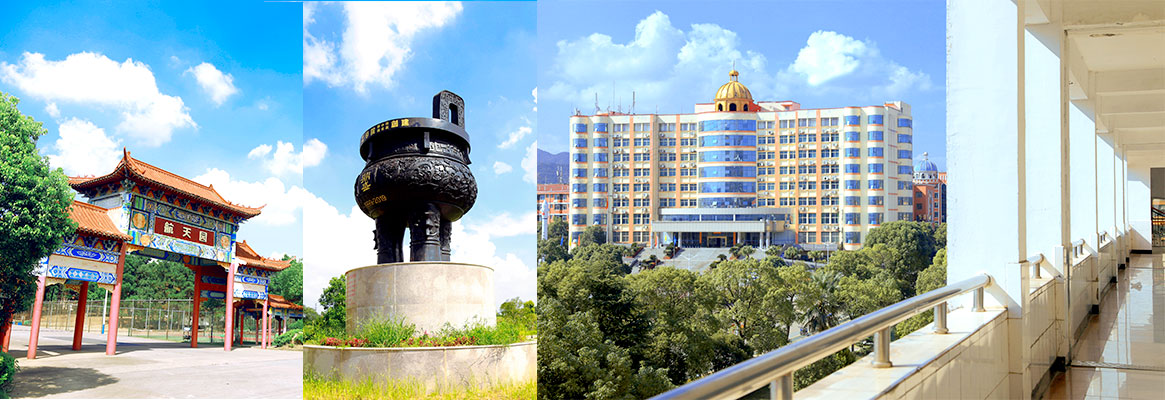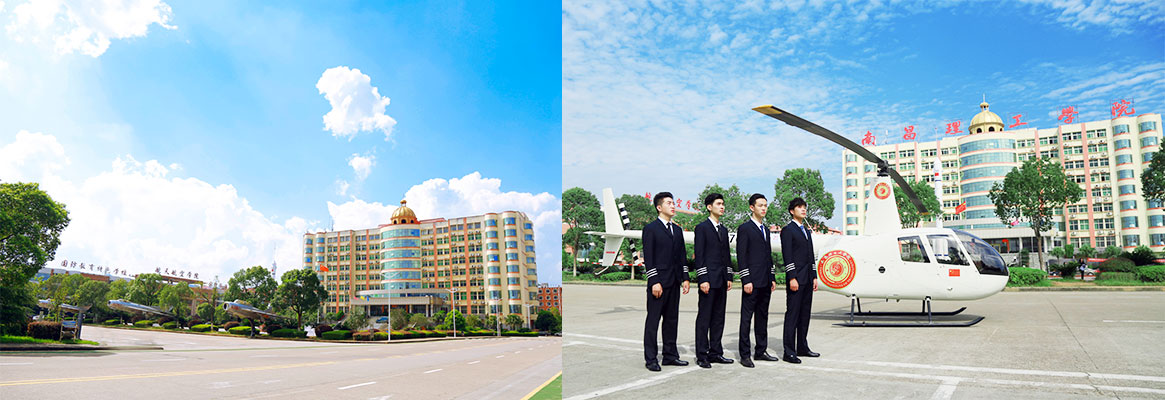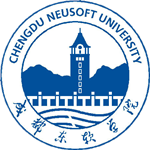About Nanchang Institute Of Technology
Nanchang Institute of Technology (hereinafter referred to as ‘NIT’),a general private undergraduate university approved by the Ministry of Education, was founded in May 1999 and was upgraded to a higher vocational college with the approval of the Jiangxi Provincial People’s Government in April 2001 and was named as Jiangxi Aerospace Vocational College; it was upgraded to the first approval of private undergraduate colleges and universities with the approval of the Ministry of Education in May 2005, which was named as Nanchang Institute of Technology; in April 2009, it was approved by the Degree Committee of Jiangxi Provincial Government as the first approval of private university degree granting units in Jiangxi Province; in November 2012, NIT successfully passed the qualification evaluation of undergraduate teaching by the State Ministry of Education, which was the first private university passing the qualification evaluation at one time in Jiangxi Province. The expert team unanimously drew the conclusion that NIT is a banner of private education; in April 2016, NIT and East China Jiaotong University began to jointly train postgraduate students; in April 2017, NIT was listed as a construction unit of the 13th Five-Year Master Program authorized by The Degree Committee of the Jiangxi Provincial People’s Government; In February 2018, it was named as a special school for national defense education by the Ministry of Education; in November, 2018, NIT successfully passed the undergraduate teaching review and evaluation by the State Ministry of Education. The expert team unanimously believed that Nanchang Institute of Technology is a national model private university with distinctive characteristics in national defense education and remarkable achievements in military education.
NIT is located in Nanchang, a heroic city in China. With the mission of “Hangtian Scientific Education, Revitalizing The Chinese Nation”, it adheres to the school motto of “Science, Objectivity, Virtue and Innovation”. Based in Jiangxi, NIT has a global vision and focuses on the development of social industrial structure and the demand for social talents so as to foster high-quality, application-innovative talents for national economic and social development.
Nanchang Institute of Technology covers an area of more than 3,000 acres, with a school building area of more than 700,000 square meters. There are 19 colleges, namely the Computer Information Engineering College, Mechanical and Electrical Engineering College, Electronics and Information College, Aerospace College, Construction Engineering College, Energy and Environmental Engineering College, Engineering Management College, Business Management College, Finance and Economics College, Humanities Education College, Foreign Languages College, Music College, Art and Design College, Media College, Sports College, Law College, Medicine College, International Exchanges College, Science and Technology college, and 3 departments namely Ideology and Politics, Public Education, and Military Education and Research, with nearly 30,000 full-time students.
The total assets of NIT amount to 2.9 billion Yuan, of which the total value of teaching and research equipment is 228 million Yuan. NIT has 1 national-level vocational education training base, 3 provincial-level experimental demonstration teaching centers, 244 laboratories and 255 internship training bases. The total area of the school library is 53,000 square meters, including 30,000 square meters of graphic information center, 5,426 reading seats, 3.05 million volumes of books and literature, 1.9 million types of electronic books, including China Knowledge Network, Chaoxing, Wanfang, Emerald and other 16 Chinese and foreign language databases, which is rich in books and digital resources.
Scientific Planning of Disciplines and Professional Layout Highlights the Development of Characteristics.
With the goal of “Reviving Gan (the short name of Jiangxi Province) through science and education and strengthening the province with science and technology”, NIT actively connects and serves regional economic and social development, and builds a disciplinary and professional system that serves local economic and social development. There are currently 66 undergraduate majors covering nine disciplines namely science, engineering, literature, economics, management, law, medicine, education, and art. In order to diversify its development, the school actively cultivates new disciplines and professional growth points, and applies for aviation majors such as helicopter driving technology, flight technology, and aerospace engineering. Our school’s flight technology major is rated as a provincial-level first-class construction major. In order to have characteristic development outstanding, NIT has actively applied for a number of emerging manufacturing majors, such as intelligent manufacturing engineering, robot engineering, data science and big data technology, Internet of Things engineering, new business majors including financial technology and financial engineering, nursing, rehabilitation and other new majors medical specialty. At present, the school has formed five discipline and professional clusters with comparative advantages to support the development of a new generation of information technology industry, the development of advanced manufacturing and aviation industry, the development of modern service industry, the development of cultural and creative industries, the development of energy conservation, environmental protection, new energy, and new materials industries. The school’s professional construction has achieved remarkable performances. The two disciplines of new energy science and engineering and military law are listed as key disciplines in the “12th Five-Year Plan” of colleges and universities in Jiangxi Province. Besides, there are one industry-university cooperation collaborative education project, three provincial-level excellent engineer training programs, three provincial-level professional comprehensive reform pilot projects, two provincial-level talent training model innovation experimental areas, and 15 provincial-level quality courses (quality resource sharing courses) .
Attaching Importance to Education and Teaching Reform and Strengthening the Quality of Training.
In order to deepen the reform of education and teaching, NIT adheres to the principle of coordinated development of knowledge, ability and quality, and strengthens the cultivation of professional application skills on the basis of attaching importance to the transfer of knowledge. NIT has constructed a “3 platform + interface” training plan, designed a “four practical” practical teaching system of “curriculum experiment + concentrated vocational skills training per semester + teaching link practice + second classroom practice”, and has formed a “Principal, Vice principals in charge, three-line monitoring, multi-point support, quality assurance system implemented at the grassroots level “and” three-line quality monitoring system with separate management, supervision and evaluation “.
In recent years, students have won 1,060 awards in various national and provincial mathematics modeling contests, electronic design contests, Challenge Cup national college students’ extracurricular academic and scientific works competitions, of which 168 are national awards; In the World Aerospace Model Championship in China, teachers and students of our school won four gold, one silver and four bronze on behalf of the Chinese team, especially in the rocket height record project and the recycling project, by beating the Russian team and the American team to win the championship. Because our students have solid basic knowledge, strong practical ability and adaptability, the positions they are engaged in are highly consistent with the majors they are studying, and they are well received by the employers. The employment rate of our school’s graduate students is higher than the provincial average employment rate of graduate students. It has been appraised as the “Advanced Unit for Employment of Graduates of Regular Universities in Jiangxi Province” for 5 consecutive years. Over the past 20 years of running the school, NIT has accumulated more than 198,000 outstanding graduates for social training, of which some graduates have worked in military units and enterprises such as China Aerospace Science and Technology, Aerospace Science and Technology Group, China Astronaut Training Center and Huawei Group; NIT has also trained a large number of outstanding entrepreneurs with assets of more than 100 million, including YONG zhijun, Chairman of the Board of Directors of Jiangxi Zhonglian Energy Development Co., Ltd., ZHANG Qiyi, Chairman of Shanghai Yiying Asset Management Co., Ltd., HUANG Pingxin, Chairman of the Virgin Angel Group. In recent years, the school has formed a gratifying situation of “prosperous imports, smooth exports and guaranteed intermediate quality”.
Learning and activities
.jpg)
.jpg)
.jpg)
.jpg)
Campus Scenery


.jpg)
.jpg)
In 2006, the School of International Exchange of Nanchang Institute of Technology was established to respond to the globalization of education and the general trend of building a community with a shared future for mankind, based on the national strategy of “One Belt One Road”. We continue to innovate and develop, improve the model of foreign cooperation and exchange, and improve the level of foreign-related education.
The college has first-class teaching facilities, with an intelligent language autonomous learning center, intelligent voice classroom, mobile multimedia classroom, Chinese and foreign language libraries that are in line with international standards. With a strong international atmosphere, Nanchang Institute of Technology is a window to introduce foreign high-quality educational resources and export Chinese higher education, as well as a training base for international students and international talents.
The college has a teaching team with both ability and political integrity, combination of professional and concurrent, reasonable structure, high professional titles, high education and experience of studying abroad. It currently employs more than a dozen foreign teachers from the United States, United Kingdom, South Korea, Japan, and Ukraine to teach students English , Korean , Japanese, and Chinese as a foreign language.
Set up projects and majors:
1. Sino-foreign cooperative undergraduate programs: The Ministry of Education approved the cooperation with South Korea’s Southern University to train undergraduate professional programs in automotive service engineering, and enroll students nationwide.
2. International students major: The college offers undergraduate courses in international economics and trade and foreign Chinese language courses. We have more than 100 international students in the school, from more than 10 countries such as Indonesia, Bangladesh, and Morocco” under the pace pf going out and bringing in”.
Under the supportive of school leaders, the international schooling starts with a strong power, fully reflects the characters of Sino-foreign cooperation, complementary advantages, and flexible systems. The well-known foreign universities that implement mutual recognition of credit points and inter-university exchanges with our school are: New York Institute of Technology, San Jose State University, Leicester University, University of Sunderland, Lincoln University, McGill University in Canada, Kyung Hee University in South Korea , Jeju National University in South Korea, Southern University in South Korea, Kyoto University of Information Science in Japan, Boren University in Thailand, etc., mainly for doctor degree, master degree, undergraduate and other levels of cooperation, adopting 4+0, 3+1 and other domestic and foreign joint teaching and training models. Both parties recognize each other’s credits, school system, and class hours. Upon graduation, they can obtain corresponding Chinese and foreign university diplomas (degrees) if they meet the requirements, which broadens the channels for teachers and students to study abroad and improve their academic qualifications.
Internationalization has increasingly become a must in our lives. “The world is huge, I want to experience it!” We will help the majority of outstanding students “Come from NIC and go to the world” to help every talent realize your dream. Come on, make our dreams come true!
It was established and known as Jiangxi Institute of Water Conservancy and Electric Power in 1958. It became Nanchang Institute of Technology in 2004 and was awarded as a pilot university for the “Excellent Engineer Education and Training Program” in 2011.[2] It was also approved as a direct training institution for non-commissioned officers in 2013 and became a “first-class discipline” construction university in 2017.[2] In 2018, it was selected as a national first-class professional construction university[2]. As a significant step in the innovation and reformation aspect of the university, Yaohu Honor College was established in 2014 with the aim of further selecting undergraduate students with passionate research interest and high versatility from the university (40 out of over 4000 students). While studying in the college, students are fully exposed to interdisciplinary exploration, intensive research training and international exchange.
Education
The university is dedicated to building world-class academic programs and capitalizing on the strategic opportunity of “Double First-Class”. Currently there are 13 departments:
- Yaohu Honor College
- Department of Water Conservancy and Ecological Engineering
- Department of Civil and Architectural Engineering
- Department of Mechanical Engineering
- Department of Electrical Engineering
- Department of Information Engineering
- Department of Business Administration
- Department of Economics and Trade
- Department of Humanities and Arts
- Department of Science
- Department of Foreign Language
- Department of Non-commissioned Officer
- Department of Physical Education Department
Yaohu Honor College
Every year, Yaohu Honors College selects 40 exceptional students from science and engineering majors, who demonstrate academic excellence, and a keen interest in scientific research.[17] Admission to Yaohu Honors College is rather competitive and eligible candidates must achieve excellent scores in university entrance examination (around top 10% in the province)[17]. Enrolled students in Yaohu Honors College are fully exposed to research training, interest-oriented studying and international exchange. The studying can be rather stressful and challenging when enrolled students will be comprehensively evaluated and ranked in terms of course scores, research and innovation achievement, discipline competition and etc. at the end of every semester.
Department of Water Conservancy and Ecological Engineering
The department has a very strong focus on water engineering safety, efficient utilization of resources, and ecological conservation, with national-level platforms for research and development, such as the Poyang Lake Basin platform, joint engineering laboratory, and several provincial-level key laboratories and engineering research centers.[18] Additionally, the college has established a variety of school-level research institutions and experimental centers, including the Poyang Lake Research Institute, Water Conservancy Engineering Research Center, and multiple off-campus practice training bases.[18]
Department of Civil and Architectural Engineering
The department offers six undergraduate majors, including civil engineering with specializations in construction engineering and underground space, urban and rural planning, water supply and drainage science and engineering, engineering cost, road bridge and river crossing engineering, and architecture. The civil engineering major is a first-class characteristic major in Jiangxi Province, and is part of the Jiangxi Provincial Excellent Engineer Education and Training Program.[19] The college has two provincial scientific research platforms, namely the “Jiangxi Water Conservancy and Civil Engineering Infrastructure Safety Key Laboratory” and the “Jiangxi Water Conservancy and Civil Engineering Special Reinforcement and Safety Monitoring Engineering Research Center.” It is also home to the provincial key discipline of “Twelfth Five-Year” plan. In terms of research facilities, the college has geotechnical engineering laboratories, building materials laboratories, construction engineering training bases, computing and drawing computer rooms, road and bridge engineering laboratories, structural engineering laboratories, water supply and drainage experiment centers, project cost laboratories, and a BIM engineering center.


